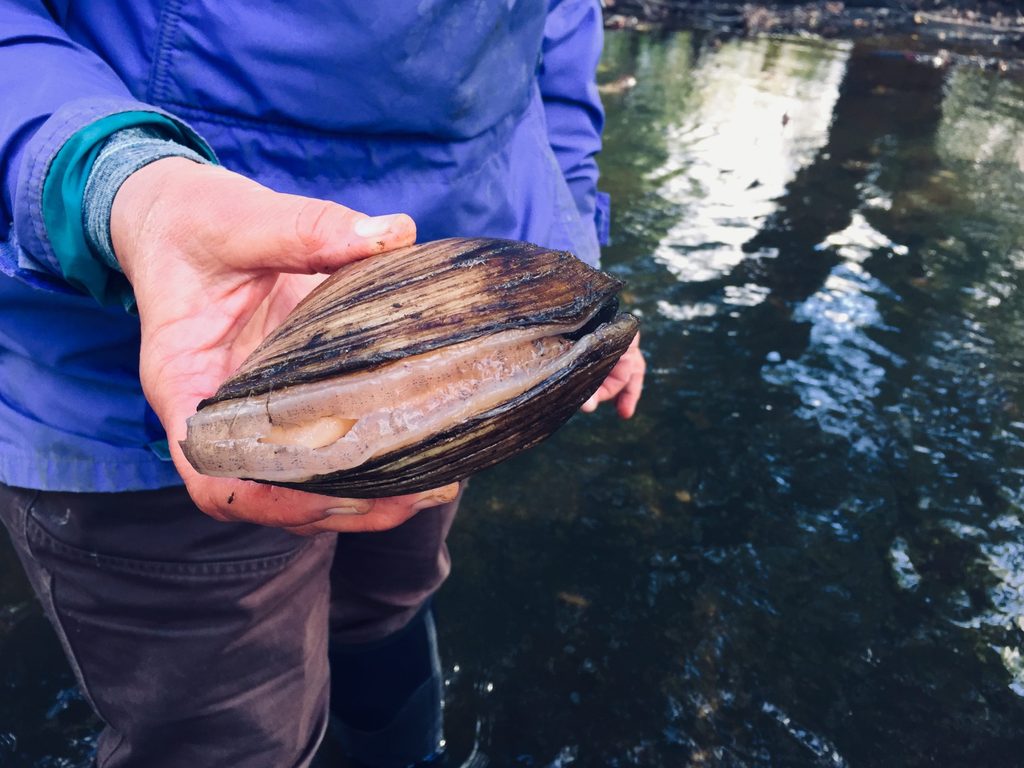If you’ve ever wandered the murky banks of the Cannon River, you may have come across the shells of freshwater mussels. Now considered one of the most rapidly declining faunal groups, there are 297 recorded species native to North America, 213 of which are now endangered or extinct. Over the years, 15 species have been found in the Cannon River.
Humans are mostly to blame for the decline of the freshwater mussels. As filter-feeders, they are sensitive to pollution and water quality degradation; while this makes them excellent indicator species of water quality, it also makes them vulnerable to ecological change. Agricultural runoff has added extra sediment to rivers, smothering some mussels. The construction of dams, such as the Ames Mill Dam in downtown Northfield, not only affects rates of sediment transport but can also strand mussels from the fish species they need to reproduce. Their unique method of reproduction involves female mussels luring in a fish to eject their larvae into the fish’s gills, which provide a home for the baby mussels for about a month. Fish are more efficient swimmers than mussels, and the baby mussels end up being dropped off upstream. Dams prevent the free movement of fish through the river system. Further complicating the issue, some species of freshwater mussel only use one species of fish as a host, which could get separated from the mussel population with the introduction of dams.
Beyond just ecological changes, freshwater mussels were actively hunted for use in button manufacturing from the late 1800s to World War II, when mussel-sourced mother-of-pearl was replaced by the burgeoning plastics industry. During this time period, the Cannon River went from a crystal clear riverine paradise to being described as “stagnate and filthy” in 1913.
While today’s murky Cannon is cleaner than it has been in the past, there is still significant work to be done. River conservation efforts hope to see these “ecosystem engineers” return to their dutiful work of straining the water of plankton, bacteria, fungi, detritus, and even toxins. A single adult freshwater mussel can filter 10-20 gallons of water per day, making it an extremely efficient water-cleaning machine!
–Samara Kroeger ‘21, for the Cole Student Naturalists

Comments
I really appreciate this information on the Cannon River. I recently read "The Golden Riffleshell's Appalachian Roadtrip" in the August 1st Science News magazine. The article also discussed the issues that freshwater mussels are facing, and it made me wonder about our Minnesota mussels. Thank you.